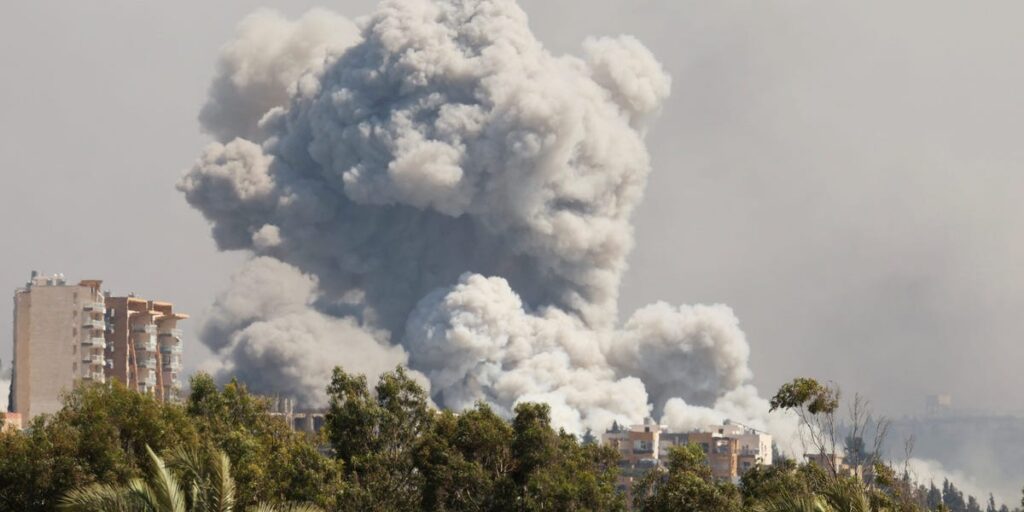Israel is intensifying its military campaign in Lebanon, where the Israel Defense Forces said it was stepping up targeted strikes on Hezbollah positions.
The IDF warned civilians in the area to stay away from potential Hezbollah targets, for their “own safety.”
“This is an advanced warning for your own safety and the safety of your family,” IDF spokesperson Daniel Hagari said in a video address on Monday morning.
Hagari continued: “We advise civilians from Lebanese villages located in and next to buildings and areas used by Hezbollah for military purposes, such as those used to store weapons, to immediately move out of harm’s way for their own safety.”
According to The Guardian, residents of Beirut and other parts of the country received text messages urging them to evacuate immediately.
CNN reported seeing screenshots warning people to leave the vicinity of buildings that are “storing Hezbollah weapons.”
Hagari, in the video address, warned that the IDF would shortly engage in “intensive, precise strikes” against its targets, which he added have been “embedded widely throughout Lebanon.”
“Move out of harm’s way immediately,” Hagari said, while accusing Hezbollah of endangering Lebanese civilian lives.
In another statement, published on Sunday, IDF spokesperson Nadav Shoshani said that since October 8, 2023, the day after the Hamas terror attacks on Israeli territory, Israel’s military has been conducting “precise operations” to weaken Hezbollah’s military capabilities.
Shoshani said that these seek to serve Israel’s two main objectives in Lebanon — facilitating the return of Israeli civilians evacuated from the north of the country and restoring security along the northern border.
Shoshani noted in the video that the IDF had already carried out “preemptive strikes” on rocket launcher barrels late last week and was continuing to actively target key Hezbollah leaders.
A series of pager and walkie-talkie explosions in Lebanon killed at least 37 people and injured thousands last week, which Hezbollah said belonged to “employees of various Hezbollah units and institutions,” according to Lebanese authorities.
The explosions have been widely blamed on Israel, which has not taken responsibility.
On Friday, an Israeli airstrike in a suburb of Beirut, the Lebanese capital, killed at least 45 people, including a senior Hezbollah leader, as well as civilians, according to Lebanon’s health ministry and Hezbollah.
Early Monday, Israeli strikes continued to hit targets in Lebanon, with the IDF saying it had hit over 300 Hezbollah sites. Associated Press journalists in southern Lebanon confirmed intense airstrikes in the region.
Local Lebanese media also reported that a strike had hit Hermel, in the north of the country, resulting in one death and several injuries.
US officials have urged Israel to de-escalate the situation, with President Joe Biden saying Sunday that the US is doing “everything we can” to prevent a wider war in the Middle East.
Eugene Rogan, a professor of modern Middle Eastern history at the University of Oxford, told Business Insider by email that: “Whatever Israel intends by this string of attacks on Hezbollah, this is not what de-escalation looks like.”
He said the exploding devices, as well as the targeted strikes in Lebanon, “make for too many blows for Hezbollah to accept without reprisal.”
“Under the circumstances, the region would appear to be on the brink of all-out war in Lebanon,” he added.
Read the full article here


